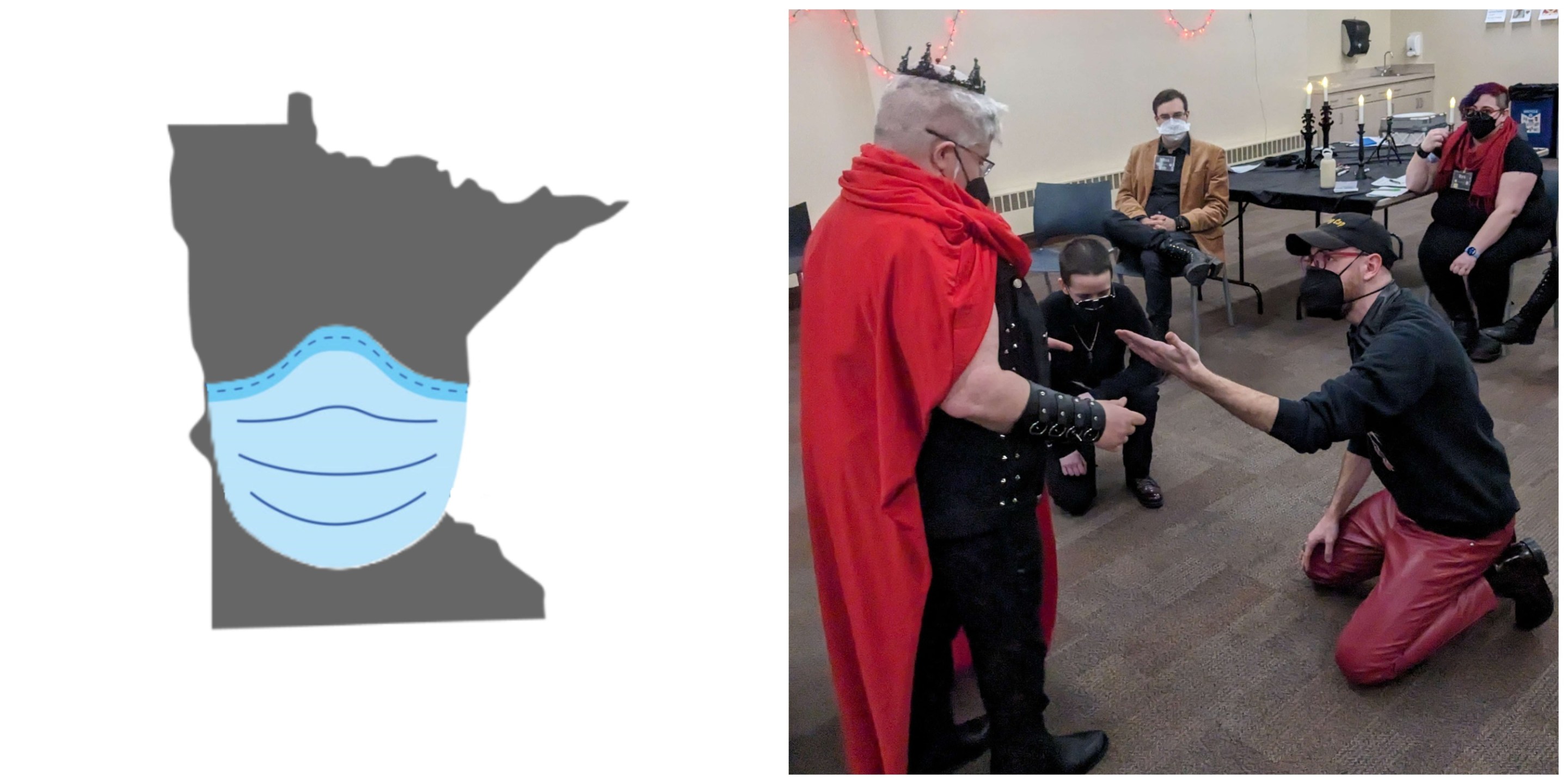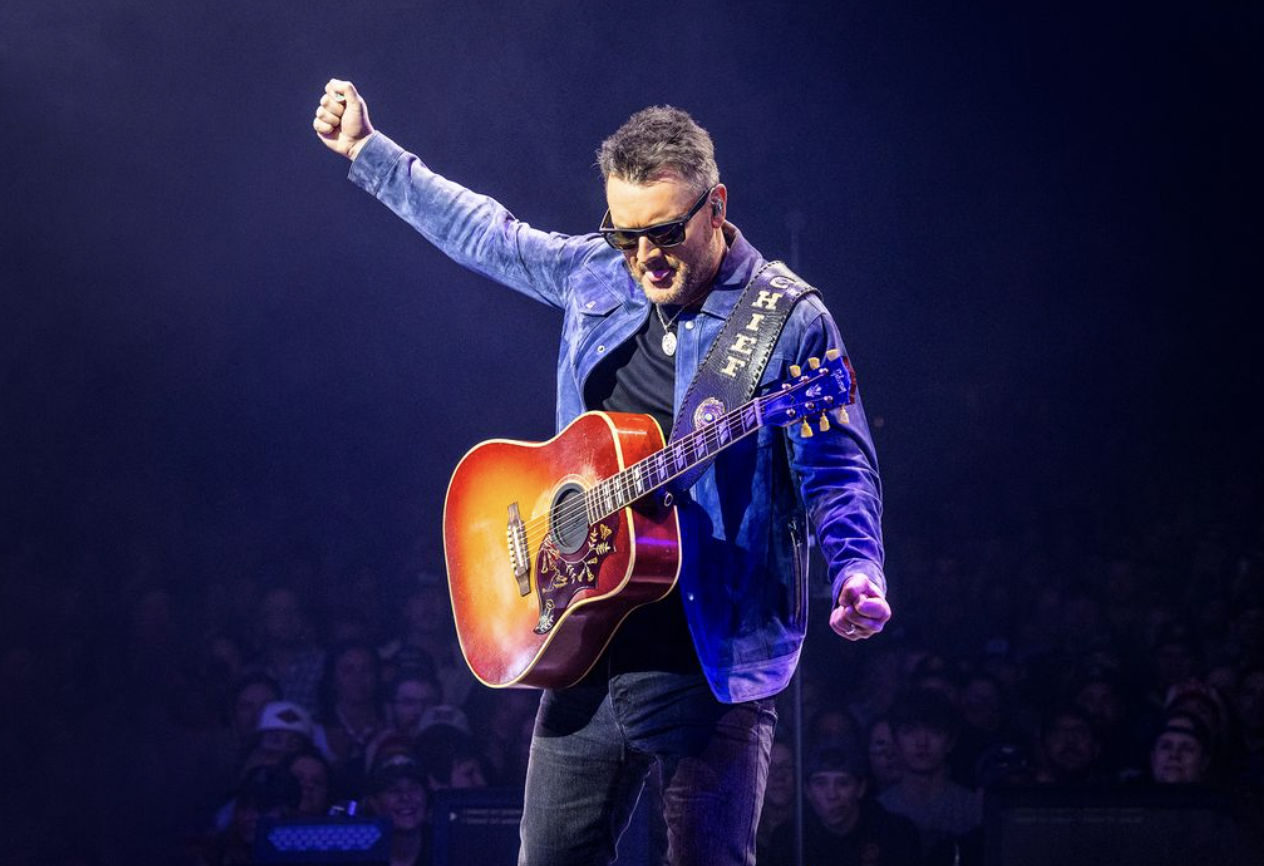It’s been more than a year since President Joe Biden said, “The pandemic is over,” as though speaking it out of existence. The era of mask mandates and stay-at-home orders feels like the distant past. And yet, Covid case rates spiked again this winter, currently declining but still in the “high” category, according to CDC national wastewater data.
While events and venues today are largely mask-free, some people have decided that they just don’t feel safe in the world as it is, and they’ve developed Covid-conscious alternatives to fill the gaps.
“I just really love dancing. I love music. I think they're such community building activities,” says Jesse, a member of Antidote, a group that formed last fall to plan regular Covid-safer dance parties in south Minneapolis.
“Being someone who doesn't really feel comfortable going into a space where there are no mask requirements and people are close together, like in a rave space, if I didn't find some friends to do it with, I don't know if it was ever going to happen,” Jesse says.
While Antidote can’t screen for everyone’s personal Covid safety practices outside of the parties, the group requires high-quality masks for everyone and encourages people to test before coming to make events that feel welcoming for people across the spectrum of Covid caution.
Jesse said that the group intentionally chose the name Antidote to represent the ways in which their parties counteract the “isolation and despair” that comes from being part of a minority of people that still have restricted lifestyles after four years of the pandemic.
“I've always loved going out to clubs and queer bars,” they say. “Those are such liberatory, affirming spaces to me, and not having access to that for the past four years has been a huge loss for me personally. Creating these spaces ourselves is a way we can combat the isolation.”
Other groups set the entry requirements even higher. Jon Cole, an organizer with LARP House, says that in order to play, everyone must provide proof that they’ve gotten the most recent available vaccine as well as a negative test, and they must wear an N95 mask.
“People are more important than LARPs,” Cole says. “And I love LARPs to death. But we find that when people have trust and feel safe in a space, they actually LARP better. It’s more fun for me as a person running and playing LARPs. We’ve got to protect one another’s safety to have the best possible experience.”
Cole says that by and large people are willing to comply with the requirements in order to participate. In fact, he says, the Covid prevention measures have become a draw for some more cautious players. “There are new people getting involved in these communities who are excited and grateful for these precautions and are like, 'This is one of the first events I've done in a year,'” he says.
The pandemic landscape has changed since the earlier years' higher death rates and flooded emergency rooms. Still, nearly 9,000 people in the United States died from Covid this January, according to CDC data, with older adults and people with additional health issues at highest risk. Long Covid remains a threat for anyone, especially those who have suffered multiple infections.
From the beginning, handling Covid has involved more than basic health considerations. Even without flat-out Covid denial, a complicated web of economic, political, and social pressures factor into public health officials’ decisions around pandemic guidelines and individuals’ decisions to comply with them. Covid precautions can be a political choice as much as a health choice. Jesse described Antidote as “inherently political,” an organization that objects to a social climate encouraged by government guidelines that they think are wrong.
Just last week, for example, the CDC rolled back the mandatory isolation period for infected individuals, following similar moves from Oregon and California, which cited “reducing social disruption” as a major reason for the change.
Rob Wallace, an evolutionary biologist in St. Paul, is one of the founders of People’s CDC, an organization of professionals in various fields that aggregates and distributes information about the pandemic. Wallace has spoken loudly and publicly about the failures of U.S. public health infrastructure; People’s CDC calls Covid a “mass disabling crisis,” one that Wallace says public health agencies are choosing to ignore in spite of scientific evidence.
Cal Hanson, an EMT at a pediatric hospital, started distributing masks, at-home tests, and other Covid safety supplies to people in their neighborhood in 2020. Since free testing sites shuttered across Minnesota—there are only six still operating in the state—Hanson says they strengthened their efforts to make sure people had testing supplies at home. Hanson collects masks and tests from community centers and other partners and runs fundraisers to be able to buy supplies.
“We can't rely on the government, just as we've seen historically. We have to do it ourselves,” Hanson says.
Similar initiatives are all over Twin Cities social media. Meridith Richmond runs the Share Clean Air project, which raises funds to distribute air purifiers to gathering spaces. The fundraisers operate largely through Instagram campaigns.
Richmond said she has eight air purifiers of her own that she brings around with her. She outlined the three core methods for Covid prevention: “Wear a mask, ventilate, and filter the air.”
She says she’s been met mostly with opposition or just indifference when she advocates for better Covid management in shared spaces. In recent months, she said she stopped attending some events because people were no longer willing to create a Covid protocol.
“In some situations, people get very agitated and then they start talking about mask mandates,” she says. That can be a discussion-ender, but Richmond suggests that a simple change in wording can redirect the course of a conversation.
“A much better approach is just a requirement,” she says. “All meetings have some sort of requirements. Requirements are things we can talk about and adjust.”
Hanson also says that the political weight of their Covid practices can backfire. “Sometimes I feel scared to wear a mask because it is so politicized that it then sort of outs me as a ‘leftist’ or something scary. We've talked a lot about how to punk that by maybe wearing a mask that has an American flag on it.”
Amid all that’s going wrong, Wallace is encouraged by the efforts of people “exercising independence of mind and well being and notions of commonality with people that they may not even know” to promote covid awareness and prevention.
At the same time, Wallace recognizes the limits of these local projects. “They are not in a position to operate at a scale that is necessary to deal with a pandemic,” he says. That must come from above.
Certainly, a dance party won’t end a pandemic, but Jesse said there’s more in it for them when they put together an Antidote gathering. “It’s not just about wearing a mask,” they say. “It's about building relationships and community with each other.”
When there is so much they’ve lost, according to Jesse, “There has to be joy.”







